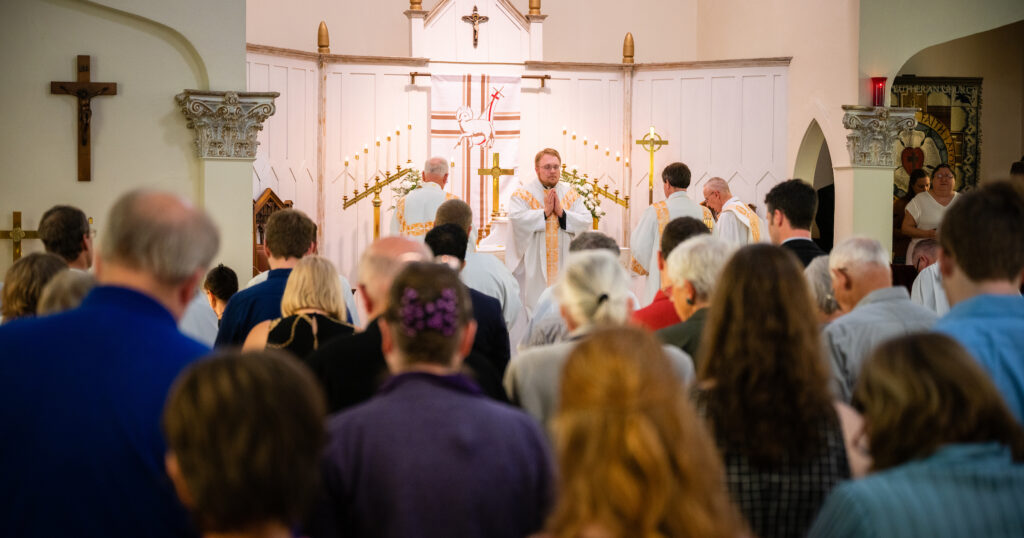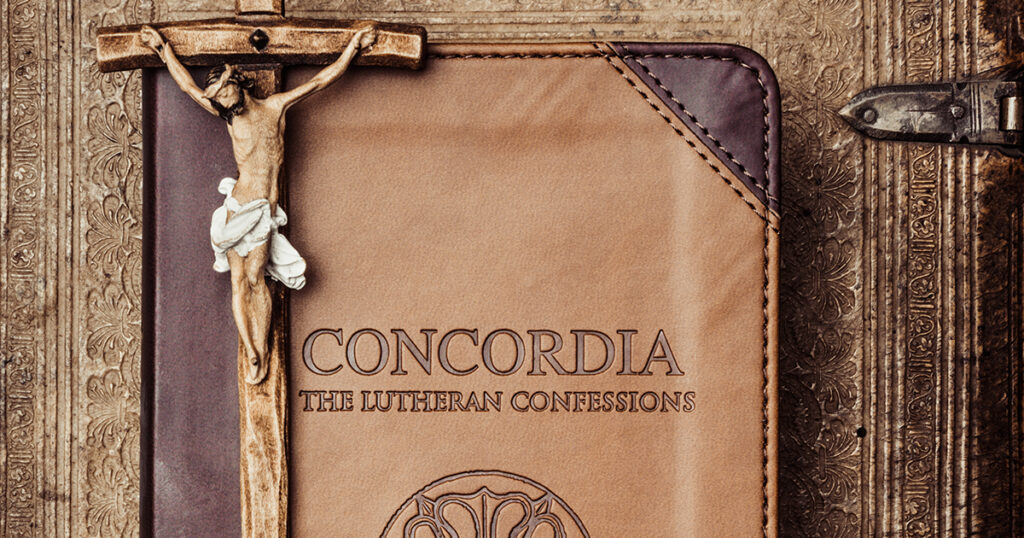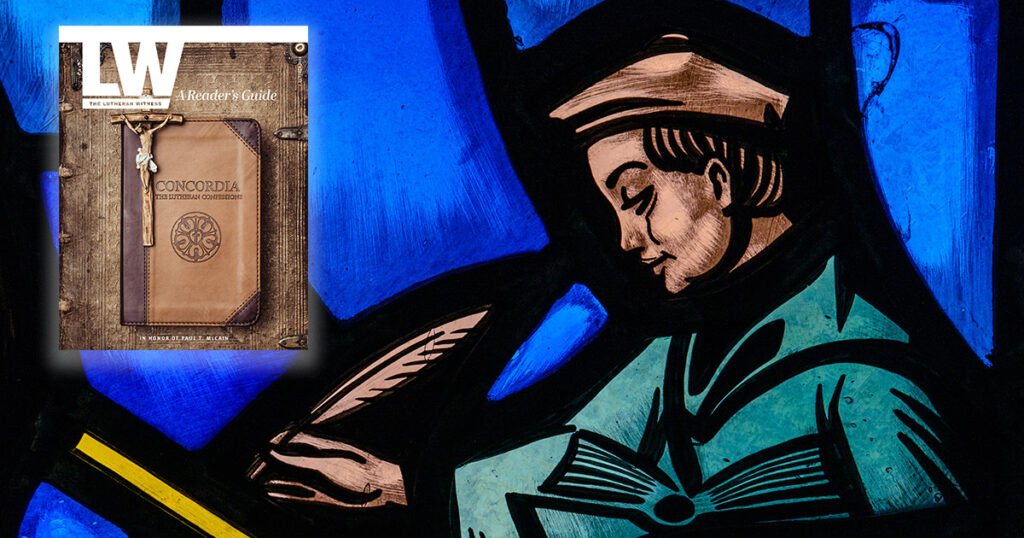By Josh Pauling
We humans are storytelling creatures. And our stories shape our identity. Countless competing narratives attempt to tell us who we are.
Consider the Darwinian creed, which tells us we are just material stuff, here by accident. Or the consumerist creed, which presents man as customer, who finds meaning in his possessions. But perhaps most tempting of all in today’s world is the creed of expressive individualism, which tells us that our personal happiness is most important and that our internal desires are who we really are. This creed manifests in everything from Moralistic Therapeutic Deism to the “do what makes you happy” mindset, from the individualistic spirit of our age to the LGBT identities exploding among even professing Gen-Z Christians.[1]
No matter what story or cultural creed tempts us, the common thread linking them together is a vision of the human person as self-defined and self-creating. The various cultural creeds might be summed up best with this simple statement of faith: I believe in myself.
At first, such individual self-creation seems freeing: We get to throw off stodgy external structures and limiting moral codes — no more cramping my style! But for anyone who takes life just the least bit seriously, self-creation easily morphs into an anxiety-inducing burden bigger than our shoulders are designed to bear. Such cultural creeds tell us the lie that we belong to ourselves, untethering man from God and from external structures of meaning and morality. Ironically, this creates a boomerang effect in which all those responsibilities are sent reeling back toward us, leaving us alone to find, formulate or even fabricate meaning for our lives.
How do we avoid getting crushed under the weight of having to invent ourselves, of having to be our own creators and sustainers and redeemers? Our Christian creed (as contained in the Apostles’ and Nicene creeds) provides a counter-cultural story and identity that is both true and real. The Christian creed challenges all the cultural creeds of self with clear doctrinal claims and a compelling narrative structure for life in Christ, uniting the worlds of fact and story, the objective truth outside us and the subjective truth about us.
The creed reveals that Christianity is a deeply rooted identity-gift of ultimate and eternal significance, anchored not in individual choice or feeling, but in the God who is. This is the God who speaks the world into existence by the word of His power, the God who is the Word made flesh, the God who gives gifts to His people through words that really mean something and Sacraments that really do something. The creed recounts and revels in this triune God’s work of creation, redemption and sanctification revealed in His Word, and as we believe, it shapes our identity. In confessing the creed, we’re led further up and further in (as C.S. Lewis might say) to this deepest reality of knowing God, ourselves and others.
Creature: The First Article and my relation to God
In confessing God as Creator, we confess that we receive our identity from another because we receive our very existence from another. The First Article of the creed frees us from trying to be God. We are embodied, contingent beings with in-built limits — and this is indeed good news. We are defined in relation to the Fatherly Creator as creatures who are loved with an eternal and unending love, a love that takes on flesh. The God who made us as bodily beings, and first pronounced it all very good, enters history bodily, which further defines our identity.
Christian: The Second Article and my relation to self
The creed’s Second Article about the Son’s work of redemption helps define the self. Now, confessing our beliefs in relation to ourselves may sound dubious after my earlier warnings about the dangers of self-creation and navel-gazing. But it is in the Second Article that we see how Christ remakes and redefines human identity around Himself. For believers, self-identity is now Christ-identity. St. Paul writes, “I have been crucified with Christ. It is no longer I who live, but Christ who lives in me. And the life I now live in the flesh I live by faith in the Son of God, who loved me and gave Himself for me” (Gal. 2:20).
Communal: The Third Article and my relation to others
The creed’s Third Article on the Spirit’s role as sanctifier tells us that we are not solitary, mechanistic units but created to be in living relation to a people and a history. In the church — not in isolation — the gifts of God are distributed to the people of God: communion, forgiveness, resurrection and everlasting life. The Spirit makes us new creatures in the image of Christ our new head, which situates our rich and robust individual Christian identity in His larger body, the church, where we all have varying gifts and roles (1 Cor. 12:12–26). Here, both self and other are properly placed in relation to God. Each individual is valued for their unique identity, but they are also united into one body.
Creedal formation
Each time we recite and reflect upon the creed, we are brought further into its story and its story is brought further into us. We’re doing more than stating bare facts or reinforcing social bonds in the local congregation. We are responding to what God has said and done by saying “this faith is mine; this is my story.” But not just mine — it’s the same faith confessed by Irenaeus and Athanasius, by Anselm and Aquinas, by Luther and Lewis, by peasants and kings, by mothers and fathers, by sisters and brothers, by friends and enemies, by rich and poor. As you recite the creed, you join millions of living Christians in thousands of languages in hundreds of countries — with untold numbers of faithful saints who have come before — echoing together the true story and meaning of the cosmos. Talk about an identity-making event!
Confessing the creed is a counter-cultural act that places you in a new community, in a new body, with a new king, and His name is neither Self nor Caesar. As we recite it, we are slaying the gods of self and submitting to something bigger and better than ourselves. In the church’s confession, societal outcasts and social butterflies, truck drivers and doctors, those in wheelchairs and those with six-packs, those who clean toilets and those who design them are united with our King and one another in His upside-down and paradoxical kingdom, as we confess where our ultimate allegiances lie. This dislocates us by reminding us we’re pilgrims in a world that confesses very different creeds. But it also locates us, anchoring us to a place and a people in a way that heals worldly divisions. From the church’s earliest days, this reality came through as our baptismal creed established a new community — a chosen race and royal priesthood that is a foretaste of the New Jerusalem, elevating the status of women, slaves and widows, and breaking down the dividing wall of hostility between Jew and Gentile (Eph. 2:14).
Quite distinct from self-constructed and self-made forms of identity, the creed grants us an identity-gift, reminding us that God plants us in webs of mutual interdependence and support. At our birth, our name is given, our place is given, our family is given, our community is given. And if we take our cues from the ancient fathers, the rule of faith is gifted to us as well. The apostolic deposit is exactly that — a deposit that is received and inherited. In a culture that only sees self-chosen commitments and identities as authentic, we see in the creed not an identity that we choose, but one that we receive by grace.
The creed tells you not just who God is, but who you are: a creature (First Article), who is in Christ (Second Article), placed in community (Third Article). This is your true identity. In our corporate and daily confession of the creed we are participating in something that transcends time and place, that undercuts the autonomous individualism of our age, and brings us back to reality. Despite the false and fleeting alternative identities we try to create for ourselves or adopt from our culture, let’s embrace the creed’s call to be defined by what we believe because we belong to the One in whom we believe.
[1] Paul Bond, “Nearly 40 Percent of U.S. Gen Zs, 30 Percent of Young Christians Identify as LGBT, Poll Shows,” Newsweek, Oct 20, 2021, https://www.newsweek.com/nearly-40-percent-us-gen-zs-30-percent-christians-identify-lgbtq-poll-shows-1641085.
Cover image: LCMS Communications/Erik M. Lunsford






Amen. The creed beautifully proclaims that our identity is in Christ. What a joy it is to confess it alongside the saints of today, and the saints of old.
How important it is to regularly recite the Apostles and Nicene Creeds can never be stressed enough. Succinct and clear, the Creeds remind us that our identity as followers of Jesus must be uppermost in our minds. In our fallen natures, we are forgetful creatures, often lulled into the idea that we can have our faith and a large part of the world’s ideas at the same time. That is rubbish. The philosophies and carnal pop culture of every generation is designed to compete and effectively diminish our witness for Christ. As the saying reminds us, we are in the world but not of the world. We cannot serve both. The Lord calls us to Himself, and the word of God, as presented in the Bible, guides us in both the spiritual and practical ways we are called to live out our lives in this perverse generation. Soli Deo Gloria